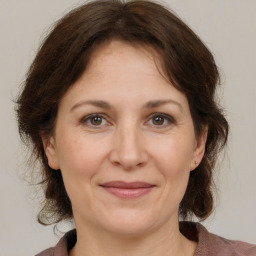Introduction
Travel and tourism industry is one of the fastest-growing industries in the world. Tourism comprises of all activities that are undertaken by the person travelling from one place to another or for staying at the place different from its usual living environment for not more than a year for the purpose of leisure, business or any other purpose. The following report depicts about the history and structure of the travel and tourism sector. In this report influence of national and international government on the travel and tourism industry has also been discussed. In these effects of demand and supply on the travel and tourism industry is also going to be interpreted. At last impact of tourism on economic, environmental and social culture has also been interpreted.
Task 1
1.1 Historical development of travel and tourism sector
The first travel agency was founded in 1758 by Richard Cox who became the travel agent of the British royal Armed Forces. He opened an agency name as Cox & Kings. Almost after 100 years in year 1841, Thomas Cook opened the first leisure travel agency. This agency was designed in order to assist the Britons to improve their lives by seeing the world and at the same time participating in the temperance movement (Baker, Bloom and Davis, 2013). In year 1845, Thomas ran his first commercial tour package, complete with the cost effective railway tickets and a printed guide in order to help the travels.
Guarantees Beyond Your Imagination
ORDER NOW- Money-Back Guarantee
- Unlimited Amendments
- Ownership Guarantee
- Individual Attention
The popularity of rail travel in tourism industry continued and at the same time auto mobile presented additional milestones in the development of the tourism (Bergsten, 2005). In year 1886 Karl Benz's wife took a long journey in order to kick of interest in auto travel and helped to publicize his car company which is now known became the Mercedes Benz.
In year 1950, the development of Club Mediterannee was seen and the similar club holiday destination, which has become the precursor of today's all inclusive resorts. In year 1952, the first commercial flights from London to South Africa and the first light of the jet age which indicates the start up of new modern tourism industry.
Thus, the decade that followed was considered to be one of the beneficial time periods for the development of all travel and tourism industry. At that time more and more tourism industry was established which in turn increases the level of competition. Increased competition forces the customers to move towards the mass tourism by introducing new destination and various modes of holidaying (Bitner and Booms, 2002).
The growth of tourism industry was affected at the time of World War 1, World War 2 and at the time of Great Depression. At the starting of present century, global events has badly pushed the international travel industry downward due the attack on the World trade centre in New York on 11 September, 2001, sensed threat of the future terrorist attack, war in Iraq, West Nile Virus and health scares including SARS, BSE.
After sometime these industry began to grow due to the massive technological shift due to increase internet use and modification of travel services. By the year 2000, online travel booking develop at the exponentially rate. And by the 2014, Expedia global leader had expanded to include brands like Hotels.com, trivago, Hotwire Group and Expedia CruiseShip Centers which in turn assist the tourism industry to earn revenue of over $4.7 million.
1.2 Structure of travel and tourism industry
The tourism industry is very large and can be broken into many small sectors. These sectors are sum up in the form of the structure. The structure of travel and tourism industry of London includes the following things:
Transportation: - Transportation is necessary to tourist, they need transportation facility when they are going to airports or coming from there or taking scenic tours. Without the proper availability of transport facility an individual will not be able to travel properly from one place to another (Evans, Stonehouse and Campbell, 2012). Types of transport includes in London are: - airlines, coach operators, railways, taxis, cruise liners and car rental companies.
Accommodation: - It is made up by the organisation in order to provide accommodation and sometimes food, beverage and entertainment to the visitors who travel from one place to another. Accommodation provided to the visitors creates a healthy image in the mind of the visitors. Types of accommodation which are provided to the visitor are: - Hotels, bed & breakfast, farm stays, apartments, resorts and camping grounds in Lomdon.
Tour operations and wholesalers: - These businesses organise tours and events which are generally the element of holiday package. Wholesalers such as Sunlover holiday buys travel products in bulk and then package those into travel deals. Wholesalers can further be segmented into two groups i.e. inbound and outbound providers. Tour operators usually work at the local level. They provide specific attraction and regions to the visitors, such as a day trip to the local wine region.
Government: - Government cannot be classed under the tourism industry, but it has a major influence on tourism industry of London(Goeldner and Ritchie, 2006). Especially due to its huge role in planning tourism, research, regulation, advising and promotion.
Attraction: - Attractions are often the lure for tourist to travel to a destination. Accommodation, transport and restaurants are considered as the primary service for the travels but it cannot be the motivational factor for travel. Attraction can either packaged into a tour or it can be sold out as standalone product. Some attraction points are commercial while some are owned by the government, some of them are free and others are not. Attraction can ve divided into segments like Natural (i.e. Parks & Zoos), Cultural (galleries, theatres), Historical (museums and monuments) and many more.
Meeting and events: - MICE involve the planning, organizing and hosting of short-term events. In order to attract these events many major cities have designed convention centres. This competitive sector contributes beneficially to the industry due to its size, cost and ancillary services involved in travelling events.
Travel agent:- Travel agents and agencies act as a retail shop for the consumers in London and at the same time is considered as the public face of the industry. Agents are simply the intermediary that sells out the tourism services that are offered by the other businesses organisation (Gooroochurn and Sugiyarto, 2005). These agencies normally target the general public, niche markets and corporate markets. They provide wide range of services like travel advice, visa information, sale of tickets and insurance needs.
Task 2
2.1 Function of government, government-sponsored bodies and international agencies in travel and tourism
One of the major functions of the government is to remain in the power. Government do not give up its responsibilities unless forced to do so. Every government make efforts to increase its legitimacy in the eyes of the people. Government identify itself with the ancient traditions, with fear of a common enemy and with the hope for the future. Government recognize the principle through which public must be served and protected. Government also supervise the resolution of conflict interest, enforcement of laws and rights, provision of postal services, the working of political process, monitoring of national and international trade and income and many more.
Get 25% Flat Discount on Each Order + 5% Extra By Placing Through App
Place Your OrderGovernment of UK take care to foster widespread ideological loyalty to the nation through the patriotic ceremonies, civic education, and propaganda. Government employ intelligence gathering organization for national defence and employ the armed forces (Hall, Timothy and Duval, 2012). Government undertake the supervisory and regulatory functions in order to carry out the national goals by developing bureaucracies to handle each and every complex function that affects the travel and tourism sector.
Government of UK is the sponsored body’s works according to the guidelines provided by the government in order to increase the economic growth of travel and tourism management. These government bodies see that no problem is faced by the tourist when they are visiting to different places away from their home for the purpose of entertainment or holiday.
The role of international agencies is to promote, sustain and universally access in the field of travel and tourism sector. These agencies works as one of the drivers for the economic growth, environmental sustainability and inclusive development of the travel and tourism sector. These agencies support the travel and tourism sector in advancing the knowledge about these sectors and introduce tourist about the various tourism policies followed in worldwide. These agencies provide various information to the tourist about the place where they want to visit and at the same time also inform them about the various procedure and rules of travel and tourism imposed by the government for the benefit of the visitors
International agencies also encourage the implementation of the Global Code of Ethics for Tourism in UK to maximize the contribution of tourism to socio-economic development and at the same time minimizing its negative impacts (Law, Qi and Buhalis, 2010). These agencies promote instrument of tourism in order to achieve the United Nations Millennium Development Goals (MDGs) which works with an aim to reduce the poverty and fostering sustainable development.
These agencies generate market knowledge, sustainable tourism policies and instruments, promote competitive, works to make tourism an effective tool for the development of the countries around the world and foster tourism education and training.
2.2 Influence of local and national economic policy on the success of the travel and tourism sector
Economic policy is the term used by the government in order to describe the actions of the government that are intended to influence the economy of a city, state and nation. Some of the examples of the government influence are government expenditures, setting tax rates, setting interest rates. Functions of this policy are to revolve around the budgets of the government. Which means that government needs to decide the way in which funds need to be invested so that it benefits the economy as a whole.
This policy protects the travel and tourism industries from the international economic and financial crises. Economic policy aid the tourist to know about the conduct of stimulus policies that could be faced by them against the financial crises. This policy looks at the current available methodological resources in order to measure the direct and indirect impact of the travel and tourism on the economy (Middleton and et.al., 2009) This policy influence the action of the government that take place in economic field against the travel and tourism industry.
These economic policies are influenced by the international institutions as well as political belief and the consequent policy of parties. Economic policies are the part of success in tourism industry because it influences the development of local and national economic growth which has the great impact on the development of the region's economy, lifestyle and amenities.
Local and national economic policies imposed by the government have lead the travel and tourism sector to the higher growth rate. Travel and tourism industries have contributed to world GDP which has been increasing continuously for the consecutive 5 years in 2014. Imposition of local and national economic policy has not only contributed towards the success of the travel and tourism sector it has also contributed towards the growth of the world.
2.3 Implication of political changes on travel and tourism sector in different countries
Political situation affects the travel and tourism industry. Because no tourist wants to go to the place where there is political instability irrespective of the fact that there is large number of potential destination for booming tourism. Tourist wants to move on to the place that offer a safety and security to their life. The country with political instability cannot be able to provide the safety.
One of the beneficial examples is of Burma. Burma is the country which is under the monopoly of the military Junta General than Shwe. This is one of the developing countries in the Asia. The country good geographical and social features with temperate climate and offers variety of destinations. But the tension between the world’s biggest country like UK and USA and the military government has resulted into the improper development of the country in travel and tourism sector.
Tourist also does not want to visit to the place where there is the high chance of terrorist attack. Therefore, the tourist wants to move on to the place where there is no fair of life and they are available to get the safe and the secure environment. Continuous change in the government policy also affects the growth of the country in lieu of travel and tourism sector (Moutinho, 2011). Thus, in order to develop the travel and tourism sector government should see that they continuous changes need not to be paid in the policies especially that affect the travel and tourism industry. Because now-days travel and tourism industry is contributing the high rate of percentage towards the GDP of the company.
Moreover, on the other hand it can also be concluded that sometimes change in the political factors can prove to be good for international tourism of the country. If the political changes that are taking place are in favour of the tourist than in that case country will be able to increase its GDP in lieu of travel and tourism sector. For example: - At the time of election period in UK the value of its currency declines as a result of economic breakdown. Therefore, it became the chance for the tourist to visit to the UK by paying cheaper price than any other time. As the changes are implemented in an specific form.
Thus, it could be said that political instability affects the travel and tourism sector both in positive and negative manner. The government of the country should continuously make efforts that they do not change their policies constantly (Page, 2014). And at the same time they should also see that the policy imposed/changed proves be beneficial for the tourist. This in turn will aid the company to increase its GDP in favour of travel and tourism industry.
Thus, from the following report it find out that the function undertaken by the government & international agencies and economic policy introduced by the government affects the tourism industry.
Task 3
3.1 Factors affecting the tourism demand
There is variety of factors present that affects the demand of the tourist in selecting the destination or a country. Thus, some of the factors that affect the demand of tourism are as follows:-
Revenue: - Income generated/ earned by the individual person affects its decision in lieu of travel and tourism of the TUI Group. Income generated by an individual depends upon the condition of inflation and deflation. A tourist with limited capital prefers to visit to the place that offers cheaper tour package of the TUI Group.
Price: - Value of the country’s currency also affects the demand of the tourism. Tourist prefers to move on the country which has lower value of the currency as compared to those countries that have high currency value.
Socio-culture relation between the various countries: - Socio-culture relation between the various cultures also affects the demand of the TUI Group. Tourist prefers to move on the place for holiday where they find a safe and secure culture relationship between the countries (Park and Yoon, 2009). For example- tourist will not prefer to move on to the place like Burma where there is tension between the military and the country like USA.
Government regulation and policies: - Imposition of the government policy also affects the demand of the tourism. Tourist will prefer to move on to the place where government policies and regulations are in favour of the tourist. Tourist will not prefer to visit the countries where government policies and regulations are constantly changing.
Political relation between the countries: - Political relationship between the countries also affects the demand of the tourism of the TUI Group. Tourist prefers to visit on to the place where there is political instability. Because a country with political instability will only be able to provide safe and secure visit to the tourist.
Economic relation between the countries: - A healthy economic relationship between the countries also affects the demand of the tourism.
Restriction on the use of foreign currency: - Restriction on the use of the salt currency affects the tourism demand. An individual only prefer to visit to the place where there is no restriction on the exchange of the foreign currency.
Change in climate and weather: - A tourist wants to prefer to the place where there is moderate climate. Thus, it can be said that climate and weather condition of the country can also affects the demand of the tourism industry.
Technological: - Demand of the tourism increases in the country which prefer to use latest technology in transportation, and in providing various services. Thus, the growth of travel and tourism industry increases in the country which prefers to use the technology.
Interest rate fluctuation: - Continuous fluctuation in the interest rate of the of the country also affects the demand of the tourism (Pike, 2005). Tourist prefers to visit the place that is providing high interest rate . Constant fluctuation in the interest rate decreases the demand of the tourism in the particular country and affect the operations of the TUI Group.
Work pattern: - Working pattern of the individual country also affects the demand of the tourism. Many individual moves on from one place to another in order to start up its new business. Thus, in lieu of working pattern of the country highly affects the mind of the tourist. An individual want to establish it business only in the country which provides healthy working environment.
Workforce: - Workforce of the TUI Groups also affects the demand of the tourism. A country with poor workforce will always have the lower contribution in travel and tourism industry.
Globalisation: - Globalisation largely affects the demand of the tourism in travel and tourism industry in relation to the TUI Group(Sharpley, 2006). Globalisation aid the individual to start or operate its business at international scale. This in turn increases the demand of the tourism.
3.2 How supply has changed to meet the effects of demand in UK
Change in supply affects the demand and equilibrium price which is offered by the TUI group. Supply has changed to meet the effects of the demand in UK in several ways:-
Accommodation:-Accommodation facility provided to the tourist affects the demand and supply of the tourist of the TUI Group. Tourist normally prefers to visit at the place which provides the better accommodation facility. A healthy accommodation facility increases the demand of the tourist which in turn increases the supply.
Tour operates: - Behaviour of the TUI Group also affects the demand and supply of tourism in UK. If behaviour of the tour operates is not good than it can cause the decline in the demand of the tourism. Thus, the country should make a continuous efforts to see that tour operates behave properly with the tourist.
View Samples on coursework, essay, and dissertation
Free Samples
Quality and services: - Quality of services provided by the country also affects the demand and supply of tourism in lieu of travel and tourism industry. Poor quality of services will result in the reduction in supply and demand of the tourism.
Types of products technology: - TUI groups normally prefers to move on the place which provides various services by using latest technology (Song and Li, 2008). This feature is normally undertaken by the tourist who moves from one place to another in order to start up its new business or operates its existing business unit.
Thus, from the following analyses it is found out the various political, economical, socio culture, technological, work pattern and many more factors affects the demand and supply of tourism in lieu of travel and tourism industry (Tribe, 2005). Some factors prove to be beneficial for the tourism while availability of some factors badly affects the demand of tourism.
Conclusion
From the following report it is concluded that availability of various international and national policy influence the travel and tourism sector. In this report various factors that affect the demand and supply of the tourism are also concluded. In this positive and negative impact of economic and environmental on tourism is discussed. At last various strategies are developed in order to minimise the negative impact and maximise the positive impact.
References
- Baker, S.R., Bloom, N. and Davis, S.J., 2013. Measuring economic policy uncertainty. Chicago Booth research paper. (13-02).
- Bergsten, C.F. ed., 2005. The United States and the World Economy: foreign economic policy for the next decade. Peterson Institute.
- Bitner, M. J. and Booms, B. H., 2002. Trends in travel and tourism marketing: The changing structure of distribution channels. Journal of travel research. 20(4). pp.39-44.
- Evans, N., Stonehouse, G. and Campbell, D., 2012. Strategic management for travel and tourism. Taylor & Francis.
- Goeldner, C. R. and Ritchie, J. B., 2006. Tourism: Principles, practices, philosophies. John Wiley & Sons.
- Gooroochurn, N. and Sugiyarto, G., 2005. Competitiveness indicators in the travel and tourism industry. Tourism Economics. 11(1). pp.25-43.
- Hall, C.M., Timothy, D.J. and Duval, D.T., 2012. Safety and security in tourism: relationships, management, and marketing. Routledge.
- Law, R., Qi, S. and Buhalis, D., 2010. Progress in tourism management: A review of website evaluation in tourism research. Tourism management. 31(3). pp.297-313.
- Middleton, V.T. and et.al., 2009. Marketing in travel and tourism. Routledge.
- Moutinho, L. ed., 2011. Strategic management in tourism. CABI.
- Page, S.J., 2014. Tourism management. Routledge.
- Park, D. B. and Yoon, Y. S., 2009. Segmentation by motivation in rural tourism: A Korean case study. Tourism management. 30(1). pp.99-108.
- Pike, S., 2005. Tourism destination branding complexity. Journal of Product & Brand Management, 14(4), pp.258-259.
- Sharpley, (2006) Travel and Tourism 1st edition Sage Publication
- Song, H. and Li, G., 2008. Tourism demand modelling and forecasting—A review of recent research. Tourism Management. 29(2). pp.203-220.
- Tribe, J. (2005) The Economics of Leisure and Tourism: Environments, Markets and impacts 3rd edition, Butterworth- Heinemann
- Xiang, Z. and Gretzel, U., 2010. Role of social media in online travel information search. Tourism management. 31(2). pp.179-188.
- Zhang, X., Song, H. and Huang, G.Q., 2009. Tourism supply chain management: A new research agenda. Tourism management. 30(3). pp.345-358.






















